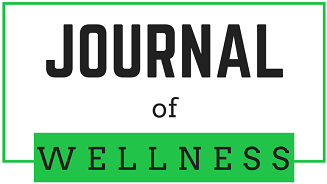
Funder
Office of Faculty and Professional Development for your COVID Wellness Mini-Grant, Penn State Health
Conflict of Interest
The authors have no conflict of interest to declare for this work
Abstract
Introduction: There is generally a concerning likelihood of burnout in healthcare workers. Given the impact of COVID-19 on healthcare workers, our institution identified the need for wellness interventions to foster adaptive functioning and mitigate burnout. The purpose of this pilot project was to assess the feasibility of virtual holistic interventions like meditation, art, laughter therapy and dance and their impact on overall well-being of physicians and advanced practice providers (APPs).
Methods: A series of 12 virtual sessions (art therapy, dance therapy, mindfulness-based practices/meditation and laughter therapy) were offered to providers over a 6-month period. Participants completed an online survey reporting stress levels on Likert scale 0-10 after each session. These sessions followed an open group format. Data obtained were analyzed using mixed methods.
Results: A total of 72 participants attended the sessions (mean: 6, range 2-12), and 40% (29) completed the surveys. Most respondents were white (62%), female (90%) and physicians (69%, with 31% APPs). More than half worked in specialty services (66%), with the rest in primary care (34%). 41% were above the age of 60. Approximately 93% reported statically significant reduction in stress level following the intervention period (pre mean score: 6.3 versus post mean score 2.4, p < .0001). Comments indicated post-intervention stress reduction and relaxation. Subjects appreciated the program and enjoyed the sessions. Some participants felt a sense of accomplishment and connectedness.
Conclusion: This virtual program was well received by the providers, who demonstrated significant, immediate stress reduction and reported feeling relaxed after the sessions. These preliminary data are encouraging and point toward the feasibility of holistic approaches to support overall provider well-being. Larger, multi-centered comparative studies should evaluate the impact of different well-being activities, with attention to improving engagement.
DOI
10.55504/2578-9333.1208
Recommended Citation
Baweja, Ritika; Hayes, Michael; Joshi, Aditya; and Baweja, Raman
(2024)
"Innovative Virtual Wellness Interventions at an Academic Medical Center: A Pilot feasibility Study,"
Journal of Wellness: Vol. 5
:
Iss.
2
, Article 6.
DOI: https://doi.org/10.55504/2578-9333.1208
Available at:
https://ir.library.louisville.edu/jwellness/vol5/iss2/6
Included in
Bioethics and Medical Ethics Commons, Business Administration, Management, and Operations Commons, Creative Writing Commons, Dietetics and Clinical Nutrition Commons, Educational Assessment, Evaluation, and Research Commons, Health and Physical Education Commons, Health Law and Policy Commons, History Commons, Kinesiology Commons, Medical Humanities Commons, Nursing Commons, Nutritional and Metabolic Diseases Commons, Philosophy Commons, Physiology Commons, Psychiatric and Mental Health Commons, Public Health Commons, Substance Abuse and Addiction Commons
